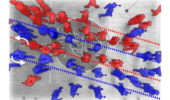A team of researchers has developed an AI model that predicts survival of cancer patients more accurately and with more readily available data
The model of the UUniversities of British Columbia and BC Cancer are using natural language processing (NLP) – a branch of AI that understands complex human language – to parse oncologist notes after the patient’s initial consultation visit, the first step of the oncological pathway after diagnosis. By identifying the unique characteristics of each patient, it was demonstrated that the model is able to predict survival at six, 36 and 60 months with greater than 80% accuracy. The findings were published in JAMA Network Open.
“Predicting cancer survival is an important factor that can be used to improve cancer care,” said lead author Dr. John-Jose Nunez, a psychiatrist and clinical research scientist at the Center for Mood Disorders. UBC and BC Cancer. “It may suggest that healthcare professionals seek support services earlier or offer a more aggressive treatment option earlier. Our hope is that a tool like this can be used to personalize and optimize the care a patient receives right away, ensuring the best possible outcome.”
Traditionally, cancer survival rates have been calculated retrospectively and classified only according to a few generic factors, such as tumor site and tissue type. Despite familiarity with these rates, it can be difficult for oncologists to predict precision the survival of an individual patient due to the many complex factors influencing outcomes. The model developed by Dr. Nunez and his collaborators, which include researchers from BC Cancer and UBC’s departments of informatics and psychiatry, can capture unique clues within a patient’s initial consultation document to provide an assessment more nuanced. Furthermore, it is applicable to all types of cancer, whereas previous models were limited to some types of cancer.
“The AI reads the consultation document similar to how a human would read it,” Dr. Nunez said. “These documents contain many details, such as the patient’s age, type of cancer, underlying health conditions, past substance use and family history. AI brings all of these elements together to draw a more complete picture of patient outcomes.”
The researchers trained and tested the model using data from 47,625 patients from all six BC Cancer sites located in British Columbia. To protect privacy, all patient data is kept securely stored at BC Cancer and is presented anonymously. Unlike the review of medical records by human research assistants, the new AI approach has the advantage of maintaining complete confidentiality of patient medical records.
In the future, the technology could be applied in cancer clinics across Canada and around the world.






